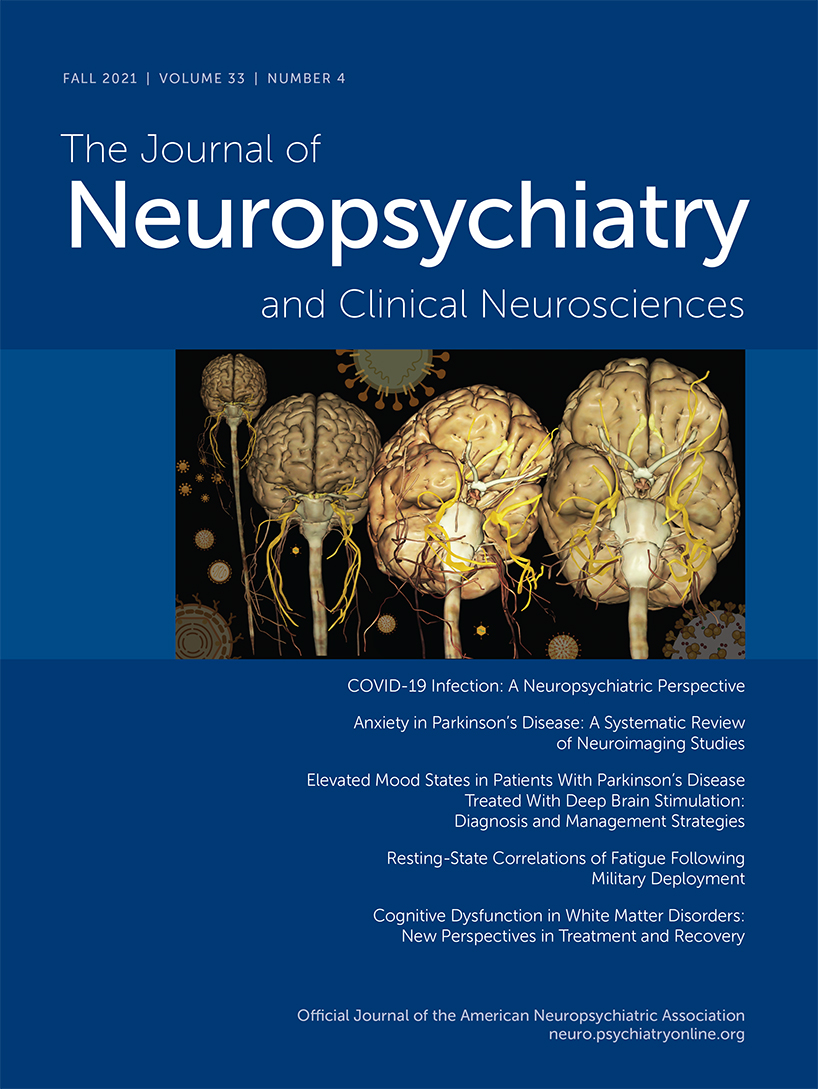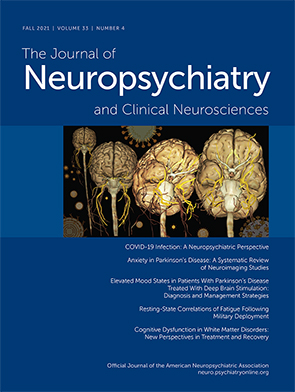Pseudodelirium: Psychiatric Conditions to Consider on the Differential for Delirium
Abstract
Objective:
Methods:
Results:
Conclusions:
Case Study
Introduction
| Risks of diagnosing primary psychiatric illness as delirium | Risks of diagnosing delirium as primary psychiatric illness | ||
|---|---|---|---|
| Risk | Example | Risk | Example |
| Psychiatric treatments withheld | Benzodiazepines or ECT is used for catatonia. Mood stabilizers (e.g., lithium) are used for mania. Antidepressants are used for depression. Delayed pursuit of a “medication over objection” hearing for psychotic decompensation occurs. | Reversible conditions overlooked | The list of medical causes of psychiatric symptoms is extremely long (49). |
| Inappropriate medications given | Antipsychotics are effective for psychosis in a formal thought disorder and for psychosis and mania in delirious mania. However, their use in catatonia requires careful consideration; neuroleptic-induced extrapyramidal symptoms may be difficult to differentiate from features of catatonia, and patients with catatonia may be at higher risk of developing neuroleptic malignant syndrome, especially from high-potency agents. | Inappropriate psychiatric admission | Psychiatric settings are not equipped to manage acute medical conditions. For instance, intravenous antibiotics often cannot be given for infection (i.e., lines represent a safety risk) and supplemental oxygen is often unavailable. |
| Unnecessary workup completed | Expanded workup for delirium is costly, time-consuming (e.g., prolonged length of stay), and potentially invasive (e.g., lumbar puncture). | Inappropriate medications given | Benzodiazepines given to a delirious patient may worsen cognition and delay recovery; use of antipsychotic medication may cause extrapyramidal side effects. |
| Psychosocial and family history overlooked | Legal situation is not obtained (e.g., legal charges may be pending, Ganser syndrome). History of similar presentations for schizophrenia or bipolar disorder is present, including common delusional themes. | Medical deterioration | Delayed treatment of autoimmune encephalopathy is associated with cognitive and functional sequelae. |
Methods
Results
Disorganized Psychosis
Clinical features.
Differentiation from delirium.
| Variable | Delirium | Disorganized psychosis | Ganser syndrome | Delirious mania | Primary catatonia |
|---|---|---|---|---|---|
| EEG | Diffuse slowing | No specific pattern | Typically normal | Unknown | Typically normal |
| Clinical status | Sick, often frail | Medically stable | Medically stable | Variable; often with autonomic activation | Medically stable |
| Arousal | Rarely appropriately alert | Alert | Fluctuates; may be alert for extended periods | Can alternate between hyperkinetic and stuporous | Usually stuporous, occasionally hyperkinetic |
| Interpersonal | Inattentive | Variable; often difficult to rule out inattention | Often engaged | Fluctuates; often inattentive | Disengaged, negativistic; occasionally automatically obedient |
| Verbal responses | Muddled thinking | Speech disorganized | Approximate answers common | Initially hyperverbal; may devolve to mutism | Mute, whispered, verbigeration, or echolalia |
| Sensorium | Clouded | Usually clear | Verbal content suggests clouding | Clouded in mid- to late stages | Often clear but difficult to assess |
| Emotional state | Consistent with motor subtype | Often paranoid | Effortful engagement | Manic, may devolve to blunted state | Fearful, occasionally manic |
| Psychosocial | Reduced engagement | Difficult to engage | Bizarre; psychosocial stressor present | May be initially intrusive, then disengaged | Variable, related to underlying condition |
Management.
Ganser Syndrome
Clinical features.
Differentiation from delirium.
Management.
Delirious Mania
Clinical features.
Differentiation from delirium.
Management.
Catatonia
Clinical features.
Differentiation from delirium.
Management
Discussion
| Diagnostic criteriaa | Examples in primary psychiatric conditionsb |
|---|---|
| Criterion A, part 1: “Disturbance in attention” | Catatonia: Mutism and negativism can prevent a patient from demonstrating attention. Mania (especially delirious mania): Flight of ideas and distractibility prevent a patient from engaging consistently on evaluation. ADHD: Inattention and reduced concentration are included as diagnostic features. |
| Criterion A, part 2: “Disturbance …in awareness” | Catatonia: Mutism and negativism can prevent a patient from demonstrating awareness. Disorganized psychosis: Although patients with psychotic illness are typically oriented, acute psychotic decompensation can present with “word salad” or grossly disrupted thought process. Dissociative disorders (including Ganser syndrome): Dissociation is a disruption in the normal integration of consciousness, experience, and actions, often leading to lack of situational awareness. |
| Criterion B: “Develops over a short period …and tends to fluctuate” | Mania: Symptoms typically develop over days. Acute psychosis: Symptoms typically develop over days. Dissociative disorders: Symptoms often occur over hours to days; Ganser syndrome can exhibit fluctuation over the course of the day. |
| Criterion C: “An additional disturbance in cognition,” [including] memory, orientation, language, visuospatial ability, or perception” | Catatonia: Mutism and negativism can prevent a patient from engaging in cognitive evaluation. Acute psychosis: Delusional recall may confound assessment; paranoia may prevent a patient from engaging in assessment. Mania: Profound irritability can prevent a patient from engaging in formal cognitive assessment. Dissociative disorders: Perceptual disturbances may be experienced. |
| Specifier: Hyperactive, hypoactive, and mixed level of activity | Catatonia: Hypokinetic, hyperkinetic, and parakinetic subtypes are exhibited. Mania (especially severe or delirious mania): Marked psychomotor activation is present. |
Conclusions
Footnotes
References
Information & Authors
Information
Published In
History
Keywords
Authors
Competing Interests
Metrics & Citations
Metrics
Citations
Export Citations
If you have the appropriate software installed, you can download article citation data to the citation manager of your choice. Simply select your manager software from the list below and click Download.
For more information or tips please see 'Downloading to a citation manager' in the Help menu.
View Options
View options
PDF/EPUB
View PDF/EPUBLogin options
Already a subscriber? Access your subscription through your login credentials or your institution for full access to this article.
Personal login Institutional Login Open Athens loginNot a subscriber?
PsychiatryOnline subscription options offer access to the DSM-5-TR® library, books, journals, CME, and patient resources. This all-in-one virtual library provides psychiatrists and mental health professionals with key resources for diagnosis, treatment, research, and professional development.
Need more help? PsychiatryOnline Customer Service may be reached by emailing [email protected] or by calling 800-368-5777 (in the U.S.) or 703-907-7322 (outside the U.S.).

